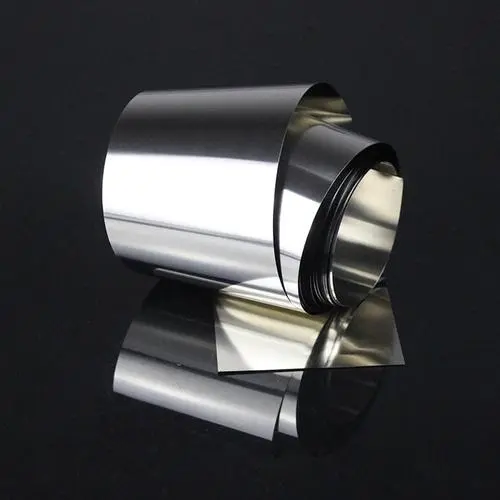
Stainless Steel Foil for Heat Treatment: Complete Application Guide
Heat treatment is a foundational process in modern metallurgy that determines the final strength and durability of metal components. When

The conundrum of using aluminum foil in the dishwasher has stirred kitchens and minds alike. The question is not merely about cleaning but touches the very essence of environmental stewardship, economic sensibility, health precautions, and practical wisdom. In this article, we will unravel the five core perspectives that illuminate the why foil in dishwasher behind this everyday practice. From the environmental ramifications to the effects on our appliances, health concerns, economic factors, and aesthetic and practical considerations, we’ll dissect why this seemingly simple act is laden with complexities. If you’ve ever tossed a piece of foil in the dishwasher, this article is an essential read, as we explore why this practice is more than meets the eye.
Aluminum foil is used widely. Its usage in the dishwasher has become a hot topic. Foil can cause harm.
Foil in the dishwasher leads to waste. It often can’t be recycled. This is a burden on the environment. Our landfills grow.
The use of foil in dishwashers consumes water. It might not clean the foil well. This leads to more water use. It’s an issue.
The production of foil needs energy. Using it in the dishwasher adds to this. The carbon footprint grows. We must take care.
Washing foil is energy consuming. Dishwashers use electricity. This method is not efficient. It harms the planet.
There are better ways. Using reusable covers is one. It saves resources. It is a smarter choice. Let’s think about our planet.
Putting foil in the dishwasher may cause problems. It can block water flow. This leads to poor cleaning. Your dishes stay dirty.
Foil can react with detergents. It might cause spots on dishes. It’s not ideal.
Using foil may damage your dishwasher.
| Part | Damage Caused |
|---|---|
| Spray Arm | Blockage |
| Filter | Clogging |
| Heating Element | Overheating |
These damages cost money. They reduce efficiency. It is a lose-lose situation.
Foil might seem handy. It may look like a good idea. It’s not. It costs more in the long run. There are better options.
Washing foil can release toxins. It can contaminate food. This poses health risks. We should avoid it.
Foil can carry bacteria. It can spread to dishes. This is unsafe. Hygiene must be our priority.
Aluminum might leak into food. It can be harmful. We must be aware.
By following these, we protect health. It’s vital.
Foil is not cheap. Washing it wastes money. It’s not wise.
Damage to dishwashers is costly. Repairs add up. Avoid foil to save money.
Foil recycling is complex. Dishwashing makes it harder. It affects the recycling industry. The economy feels it too.
Avoiding foil saves money. It supports sustainability. This is good for all. Let’s embrace wise choices.
Washing foil changes its look. It becomes dull. It may tear. It’s not appealing.
Washed foil loses strength. It may not be usable. It’s not practical.
| Do’s | Don’ts |
|---|---|
| Reuse wisely | Wash in dishwasher |
| Recycle | Use when unnecessary |
We can make better choices. Using foil wisely is key. Let’s be smart and sensible.
Foil has its place. Let’s use it well. The kitchen is a place of art and skill. Let’s honor it.
The debate on using foil in the dishwasher has many sides. It touches on the environment, health, economy, and practical life. The five perspectives show the depth of this issue. The choice seems clear. Avoiding foil in the dishwasher is wise. It saves resources and health. It’s smart for our wallets and our world. Let’s make the wise choice. Let’s be mindful in our kitchens. Let’s live well.

Heat treatment is a foundational process in modern metallurgy that determines the final strength and durability of metal components. When

Stainless steel coils serve as the backbone for countless consumer products we use daily. These versatile metal sheets combine exceptional